
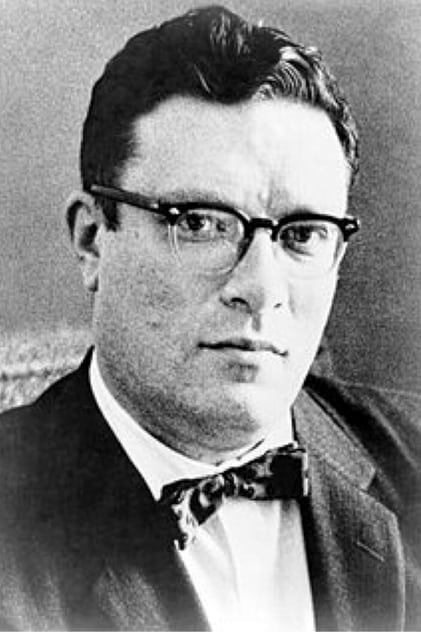
Isaac Asimov
Born: January 2, 1920
Died: April 6, 1992
in Petrovichi, Russia
Died: April 6, 1992
in Petrovichi, Russia
Isaac Asimov (born Isaak Yudovich Ozimov, January 2, 1920 – April 6, 1992) was an American author and professor of biochemistry at Boston University, best known for his works of science fiction and for his popular science books. Asimov was one of the most prolific writers of all time, having written or edited more than 500 books and an estimated 9,000 letters and postcards. His works have been published in nine of the ten major categories of the Dewey Decimal System (The sole exception being the 100s: philosophy and psychology, although he did write a foreword for The Humanist Way, which is published in the 100s).
Isaac Asimov is widely considered a master of hard science fiction and, along with Robert A. Heinlein and Arthur C. Clarke, he was considered one of the "Big Three" science fiction writers during his lifetime. Asimov's most famous work is the Foundation Series; his other major series are the Galactic Empire series and the Robot series, both of which he later tied into the same fictional universe as the Foundation Series to create a unified "future history" for his stories much like those pioneered by Robert A. Heinlein and previously produced by Cordwainer Smith and Poul Anderson. He wrote many short stories, among them "Nightfall", which in 1964 was voted by the Science Fiction Writers of America the best short science fiction story of all time. Asimov wrote the Lucky Starr series of juvenile science-fiction novels using the pen name Paul French.
The prolific Asimov also wrote mysteries and fantasy, as well as much non-fiction. Most of his popular science books explain scientific concepts in a historical way, going as far back as possible to a time when the science in question was at its simplest stage. He often provides nationalities, birth dates, and death dates for the scientists he mentions, as well as etymologies and pronunciation guides for technical terms. Examples include his Guide to Science, the three volume set Understanding Physics, Asimov's Chronology of Science and Discovery, as well as numerous works on astronomy, mathematics, the Bible, William Shakespeare's works and, of course, chemistry subjects.
Asimov was a long-time member and Vice President of Mensa International, albeit reluctantly; he described some members of that organization as "brain-proud and aggressive about their IQs." He took more joy in being president of the American Humanist Association. The asteroid 5020 Asimov, a crater on the planet Mars, the magazine Asimov's Science Fiction, a Brooklyn, New York elementary school, and one Isaac Asimov literary award are named in his honor.
Description above from the Wikipedia article Isaac Asimov, licensed under CC-BY-SA, full list of contributors on Wikipedia.
Isaac Asimov is widely considered a master of hard science fiction and, along with Robert A. Heinlein and Arthur C. Clarke, he was considered one of the "Big Three" science fiction writers during his lifetime. Asimov's most famous work is the Foundation Series; his other major series are the Galactic Empire series and the Robot series, both of which he later tied into the same fictional universe as the Foundation Series to create a unified "future history" for his stories much like those pioneered by Robert A. Heinlein and previously produced by Cordwainer Smith and Poul Anderson. He wrote many short stories, among them "Nightfall", which in 1964 was voted by the Science Fiction Writers of America the best short science fiction story of all time. Asimov wrote the Lucky Starr series of juvenile science-fiction novels using the pen name Paul French.
The prolific Asimov also wrote mysteries and fantasy, as well as much non-fiction. Most of his popular science books explain scientific concepts in a historical way, going as far back as possible to a time when the science in question was at its simplest stage. He often provides nationalities, birth dates, and death dates for the scientists he mentions, as well as etymologies and pronunciation guides for technical terms. Examples include his Guide to Science, the three volume set Understanding Physics, Asimov's Chronology of Science and Discovery, as well as numerous works on astronomy, mathematics, the Bible, William Shakespeare's works and, of course, chemistry subjects.
Asimov was a long-time member and Vice President of Mensa International, albeit reluctantly; he described some members of that organization as "brain-proud and aggressive about their IQs." He took more joy in being president of the American Humanist Association. The asteroid 5020 Asimov, a crater on the planet Mars, the magazine Asimov's Science Fiction, a Brooklyn, New York elementary school, and one Isaac Asimov literary award are named in his honor.
Description above from the Wikipedia article Isaac Asimov, licensed under CC-BY-SA, full list of contributors on Wikipedia.
Movies for Isaac Asimov...

Title: Rendezvous with the Future
Character: Self (archive footage)
Released: November 16, 2022
Type: TV
Documentary series exploring the science behind the science fiction of the award-winning writer Liu Cixin, author of "The Three-Body Problem".

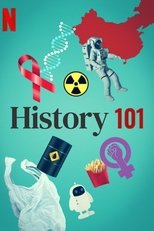
Title: History 101
Character: Self (archive footage)
Released: May 22, 2020
Type: TV
Infographics and archival footage deliver bite-size history lessons on scientific breakthroughs, social movements and world-changing discoveries.

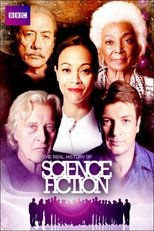
Title: The Real History of Science Fiction
Character: Himself (archive footage)
Released: April 19, 2014
Type: TV
The series heads to the very frontiers of space and science to produce the definitive television history of science fiction, told through its impact on cinema, television and literature, with the help of filmmakers, writers, actors, and graphic artists. Each episode will explore one of the enduring themes of science fiction: time travel; the exploration of space; robots and artificial intelligence; and aliens.

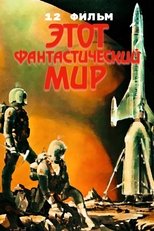
Title: This Fantastic World 12
Character: (archive)
Released: March 27, 1987
Type: Movie
Based on science fiction stories about the relationship between man and robot: A. Belyaev’s “Open Sesame” about how a robot servant robbed two old men; A. Azimova's "Liar" about a robot who can read minds and turns out to be the most humane among people; F. Chilander's "Court" about how robots tried the last person living in the city.


Title: Who's Who
Released: August 13, 1986
Type: Movie
Produced for American Public Television, this documentary on the long-running Doctor Who television series features interviews with actors and actresses who played the traveling companions of the Time Lord hero and with three actors, Jon Pertwee, Peter Davison, and Colin Baker, who portrayed the title character, as well as footage of a U.S. fan convention where Tom Baker, appeared and answered questions. The fan backlash against the 1985-6 hiatus for the series and the finding of some previously lost Jon Pertwee era episodes are addressed, and this documentary closes with some on-the-street interviews with British viewers, who tell who their favorite Doctor is.

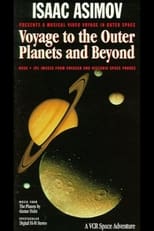
Title: Isaac Asimov: Voyage to the Outer Planets & Beyond
Character: Host
Released: January 1, 1986
Type: Movie
Travel to the edges of our solar system with this unique blend of photographic images, video and computer animation. Hosted by renowned scientist and author Isaac Asimov, the program is set to Gustav Holst's moving 1917 musical suite "The Planets." The infrequently seen footage from NASA includes images of planets and other impressive galactic bodies, including Jupiter, Saturn's rings, Pluto and much more.

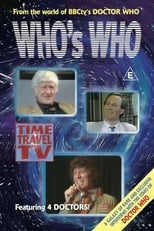
Title: Doctor Who's Who's Who
Released: January 1, 1985
Type: TV
Television documentary filmed at a Doctor Who convention, including interviews with directors, writers and actors.

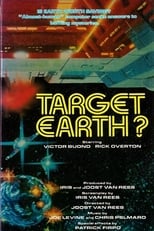
Title: Target... Earth?
Character: Self
Released: July 28, 1980
Type: Movie
Really strange documentary of Wheeler Dixon production quality on the Tunguska Event and the possibility of it happening again causing an apocalypse (basically a meteor scare film) sprinkled with UFO conspiracy kooks, and other 'professionals', riddled with stock footage of all kinds, freaky moog music and sound fx, a Dr. Who rip-off end theme, Victor Buono as Homer the Archivist, a philosophical history recorder in a space ship with a HAL 9000 type talking computer named Ino, there's also another space ship with Egyptian looking aliens girls with pasties and see-thru blouses.


Title: The Magnificent Major
Character: Self - Guest Host
Released: January 1, 1977
Type: Movie
A young girl learns the importance of reading, when she ends up in a dystopian future where reading is banned.

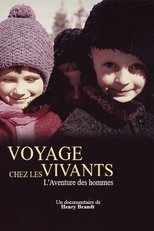
Title: Voyage chez les vivants - L'Aventure des hommes
Character: Lui-même
Released: February 12, 1970
Type: Movie

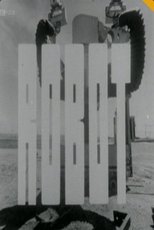
Title: Towards Tomorrow: Robot
Character: Self - Presenter
Released: January 1, 1967
Type: Movie
Documentary from 1967 on how robotics could shape human society. Your future is being created now - for better or for worse? How close are we to constructing the robot of the future? Will there be one in every house? How human will It look? These are some of the questions this programme tries to answer. Isaac Asimov, science fiction writer and prophet of the robot age, introduces the programme and predicts a future in which man and robots form a combined culture. A culture in which, to use his own words, 'mankind may want robots not only as helpers and servants but also as friends, as something with which they can identify'. Towards Tomorrow explores laboratories in England and America to discover how near scientists and engineers are to turning Asimov's science fiction into science fact.

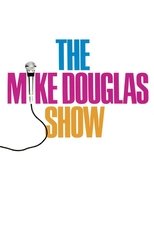
Title: The Mike Douglas Show
Character: Self
Released: December 11, 1961
Type: TV
The Mike Douglas Show is an American daytime television talk show hosted by Mike Douglas that originally aired only in the Cleveland area during much of its first two years on the air. It then went into syndication in 1963 and remained on television until 1982. It was distributed by Westinghouse Broadcasting and for much of its run, originated from studios of two of the company's TV stations in Cleveland and Philadelphia.
